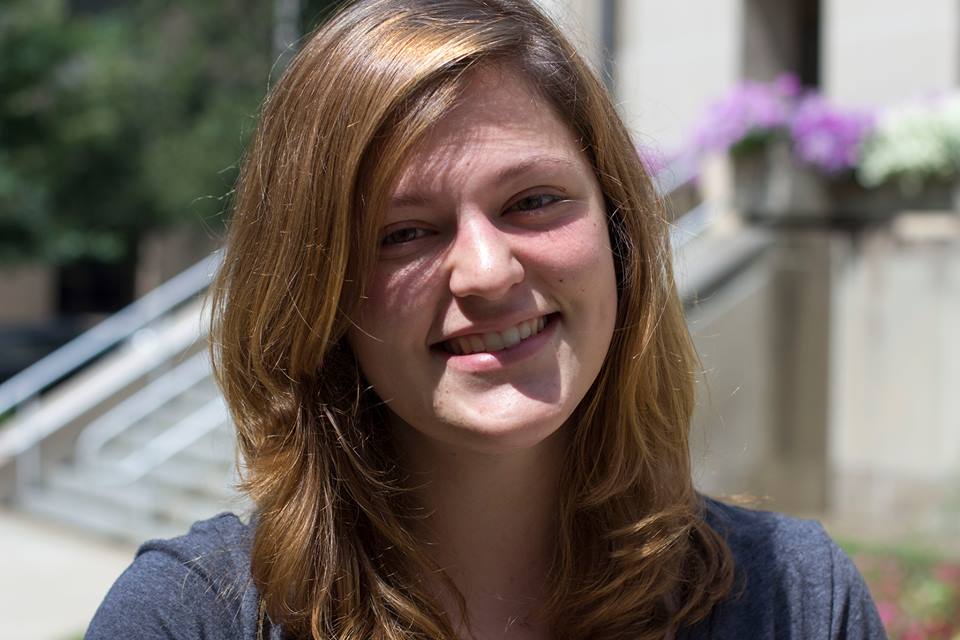Blog

Meet a Scientist: Elizabeth Hildreth
This Saturday, come meet Elizabeth Hildred—fourth year graduate student at the University of Pittsburgh! Have you ever wondered why scientists might study a plant when they are trying to learn more about human DNA? Or why scientists study fruit flies to understand human development? It sounds crazy, but we can learn a lot from “model organisms” like fruit flies, and Elizabeth will tell you all about it! Come find her this Saturday, May 20, from 1:30 to 3:30 pm, in the Tropical Forest. As a sneak preview about this exciting woman in science, read a little more about her below.
1) Introduce yourself in 5 sentences or less:
I’m Elizabeth Hildreth, a fourth year graduate student in the lab of Karen Arndt at the University of Pittsburgh. I grew up just outside of Atlanta, Georgia, and my constant desire to get away from the hustle and bustle by escaping into the woods was what originally sparked my love of science. I spend most of my time in the lab these days, but I still love hiking, camping, gardening, and anything else I can do outdoors with my dog, Cooper. I also moonlight as an improviser, and occasionally perform at a comedy club in Shadyside.
2) Why did you become a scientist?
My dad played a huge part in this. He also instilled in me my love of the outdoors and my endless curiosity by being handy around the house: whenever something was broken, he’d show me what was wrong and how it was supposed to work. As a kid, I was always interested in figuring out how and why things work the way they do, especially all of the amazing, diverse plants and animals around us, because of my dad.
3) What is the most exciting thing you’ve ever done at work?
Some of my experiments involve the use of radioactively labeled phosphorous that I incorporate into DNA molecules to visualize them on gels. Working with radioactivity involves wearing a lot of the typical “mad scientist” gear you’d see on TV shows and movies, so it’s pretty fun (and funny).
4) What skills do you use most in your job?
Organization is key. It’s hard to juggle many experiments, teaching, and other responsibilities as a graduate student, so staying organized is how I get it all done. Science also involves a lot of patience and perseverance, since experiments do fail and you have to do them over and over sometimes.
5) What is your favorite part of your job?
The community of graduate students in my department! They’re clever, sort of crazy, supportive, and all around a joy to be around.
6) If you weren’t a scientist, what would you be?
I love to cook and bake, so I’ve always wanted to open my own restaurant or bakery. I think that’s what I’ll do if this whole science thing doesn’t work out.
7) Why is science education important?
It’s important to make science accessible to the public because taxpayers are critical to science funding. I think it’s the scientist’s job to make available the knowledge they obtain so that the public knows what this money is going toward and how it benefits them. I also think most people are genuinely curious about the world around them, but it’s our job as the experts in our fields to make available the resources for the public to get involved. Traditional science education is also really important so that the next generation of scientists, today’s kids, have the foundation for asking their own questions and addressing their own curiosities!

Photo Credits: Elizabeth Hildred and Wikimedia User Botarus

